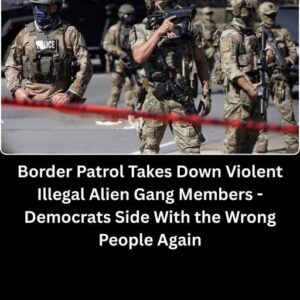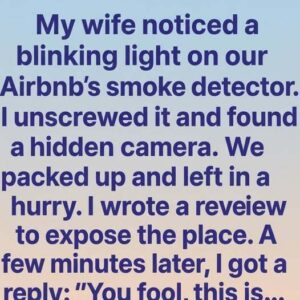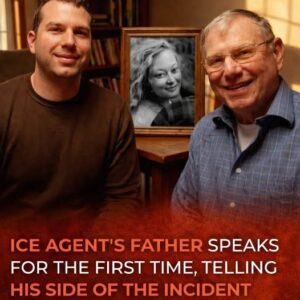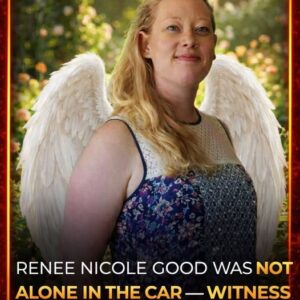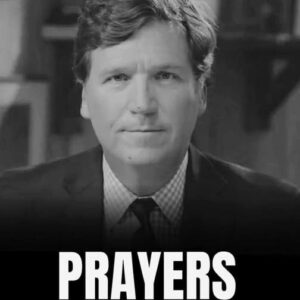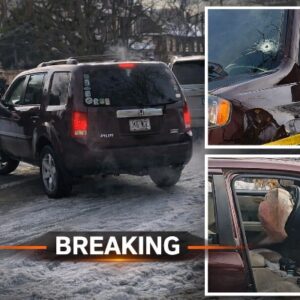The Call That No One Expected
It all began with a single phone call on a quiet Tuesday afternoon. The funeral director’s voice trembled. A 71-year-old Vietnam veteran, Richard “Doc” Patterson, was about to be cremated—alone.
No service. No military honors. No family.
His own children had refused to attend. His daughter claimed she was too busy. His son simply hung up.
But Doc wasn’t just another name on a forgotten list. He had served 32 years as a combat medic, saving countless lives under fire. Yet, in the end, he faced a farewell with no one by his side.
The director reached out to veteran groups, motorcycle clubs, and community centers across several states. Most couldn’t help. Then she called us—the Iron Brotherhood Motorcycle Club. That call changed everything.
“He’s One of Ours”
I’m Jack Morrison, president of the Iron Brotherhood. Over the years, we’ve escorted fallen officers, organized charity rides, and protected survivors of abuse. But this call hit differently.
When the director said, “He has no one,” I didn’t hesitate.
“He’s a veteran,” I said. “He’s one of ours. We’ll be there.”
That night, I sent a message across every biker network I knew:
“Vietnam vet. Abandoned by his family. Funeral this Friday. Let’s show up and make sure he isn’t forgotten.”
I had no idea what to expect. But what followed left me speechless.
A Call That Spread Like Wildfire
By Thursday, my phone wouldn’t stop buzzing. Riders came from Tennessee, Kentucky, Georgia, and Texas. Some rode through the night to honor a man they had never met.
When local news picked up the story—“Homeless Veteran To Be Buried Alone”—it went viral. By Friday morning, hundreds were ready to give Doc the farewell he deserved.
A Crowd That No One Saw Coming
At 1 p.m., the small funeral home parking lot overflowed.
Fifty-three bikers stood in full club colors, motorcycles lined like sentinels. An Army honor guard arrived in dress uniform. A Navy chaplain drove three hours to volunteer.
And nearly two hundred civilians joined, many crying before the ceremony began.
The funeral director met me at the door, tears in her eyes.
“I’ve done this for 23 years,” she said. “I’ve never seen anything like this.”
The Man Who Remembered
The service began in quiet reverence. The chaplain spoke of sacrifice, brotherhood, and the duty to never forget those who served. The honor guard folded the American flag with precision. But no family member was there to receive it.
Then, an elderly man stood in the back, leaning on a cane.
“I knew Doc,” he said softly. “1968, Da Nang. I was nineteen. I got hit in the stomach, bleeding out in a rice paddy. Doc ran through enemy fire and carried me to safety. He saved my life.”
He held up a faded photo—a young medic with a kind smile. It was Doc.
“I’ve carried this picture for 55 years,” he said. “Last night, I saw his face on the news. I finally found the man who saved my life.”
Half the room was in tears.
Stories Kept Coming
One by one, others shared their memories.
A woman recalled how Doc held her brother’s hand as he died in combat, later sending a heartfelt letter to the family. A nurse spoke about Doc’s final years volunteering at a VA hospital, counseling younger veterans with PTSD.
“He lived on the streets,” she said, “because he gave his pension to help struggling veterans. He always said, ‘I’ve already had my time. Now it’s their turn.’”
Doc wasn’t forgotten anymore. He was being remembered as a hero who gave everything to others.
The Children Arrive
Then, the doors burst open. His children arrived—well-dressed and unmistakably his.
“Who are all these people?” the daughter demanded. “We’ll handle this privately.”
Fifty-three bikers rose silently.
“We’re the family that showed up when it mattered,” I said. “Where were you?”
Her voice shook with anger.
“He was homeless! He embarrassed us! He gave everything to strangers and nothing to us!”
The nurse stepped forward.
“He gave your college fund to a widow who’d lost her husband in combat. Her children needed hope more than you needed luxury.”
The elderly soldier spoke again:
“Your father saved my life. Now, I’ll make sure his legacy lives on.”
He called his assistant from the chapel:
“Arrange a full military burial at Arlington National Cemetery, all expenses covered. Set up a memorial fund for homeless veterans—in Doc Patterson’s name.”
The children left, their chance at redemption gone.
A Hero’s Farewell
Two weeks later, hundreds of bikers rode to Arlington. Veterans, families, and strangers stood side by side to honor a man they never met—but all had learned to respect.
The memorial fund has since raised over $400,000, helping veterans find housing, mental health care, and dignity.
At the dedication, a bronze plaque was unveiled:
“Richard ‘Doc’ Patterson — Combat Medic. Hero. Brother. Never Forgotten.”
The Brotherhood That Never Ends
Every year, we ride to Doc’s grave. We share stories, read letters, and promise:
“No veteran left behind. No brother forgotten.”
Doc taught us that brotherhood isn’t about blood. It’s about showing up when no one else will.
Fifty-three bikers gave one man the farewell he deserved. But more than that, they started a movement—a reminder that compassion, loyalty, and respect never go out of style.
Sometimes, the family you choose is the one that shows up when everyone else turns away.
